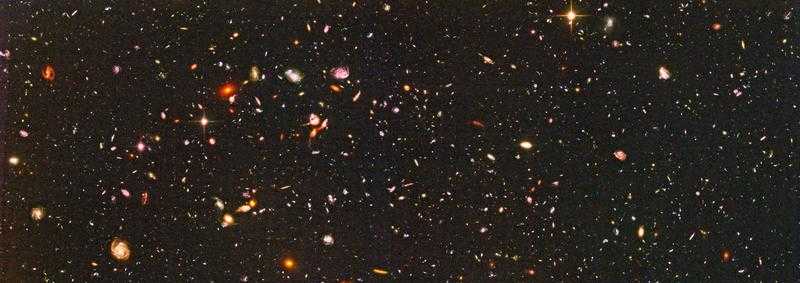Research
The evolution of galaxies
We seek to chart how galaxies have evolved over cosmic time, and to identify and understand those physical processes that have shaped their properties in different environments and at different epochs. Our flagship project for several years has been zCOSMOS. This was a major redshift survey using 600 hours on the ESO VLT to obtain redshifts of approximately 30,000 galaxies in the COSMOS field, in the redshift range 0.1 < z < 3.5 and was carried out in collaboration with a large team of European Astronomers. zCOSMOS was specifically designed to characterize the environments of galaxies in the distant Universe, from the 100kpc scale of the immediate group environment to the 100 Mpc scale of the cosmic web. A major focus at present is to identify the underlying simplicities of the galaxy population, today and at earlier times, and to use these to identify the phenomenological characteristics of the dominant physical processes involved.
The intergalactic medium
As an extension of our interest in the environment of galaxies, we are developing new ways to detect the intergalactic medium (IGM), the gaseous material between galaxies. Galaxies form out of the IGM and exchange material with it throughout their lives. We are currently working on detecting and characterizing galactic outflows through the study of metal absorption lines, and in detecting the extended filamentary structure of the IGM at high redshifts through fluorescent emission using the newly commissioned MUSE integral field spectrograph on the VLT in Chile.
Magnetic fields in galaxies
The origin of galactic-scale magnetic fields is poorly understood, and their role in cosmic structure formation is unknown, and thus they usually ignored. We are trying to fill this gap by detecting magnetic fields in and around galaxies at high redshift. We do this by studying the Faraday Rotation of the polarization vectors of background radio sources along lines of sight that pass close to high redshift galaxies along the line of sight.
